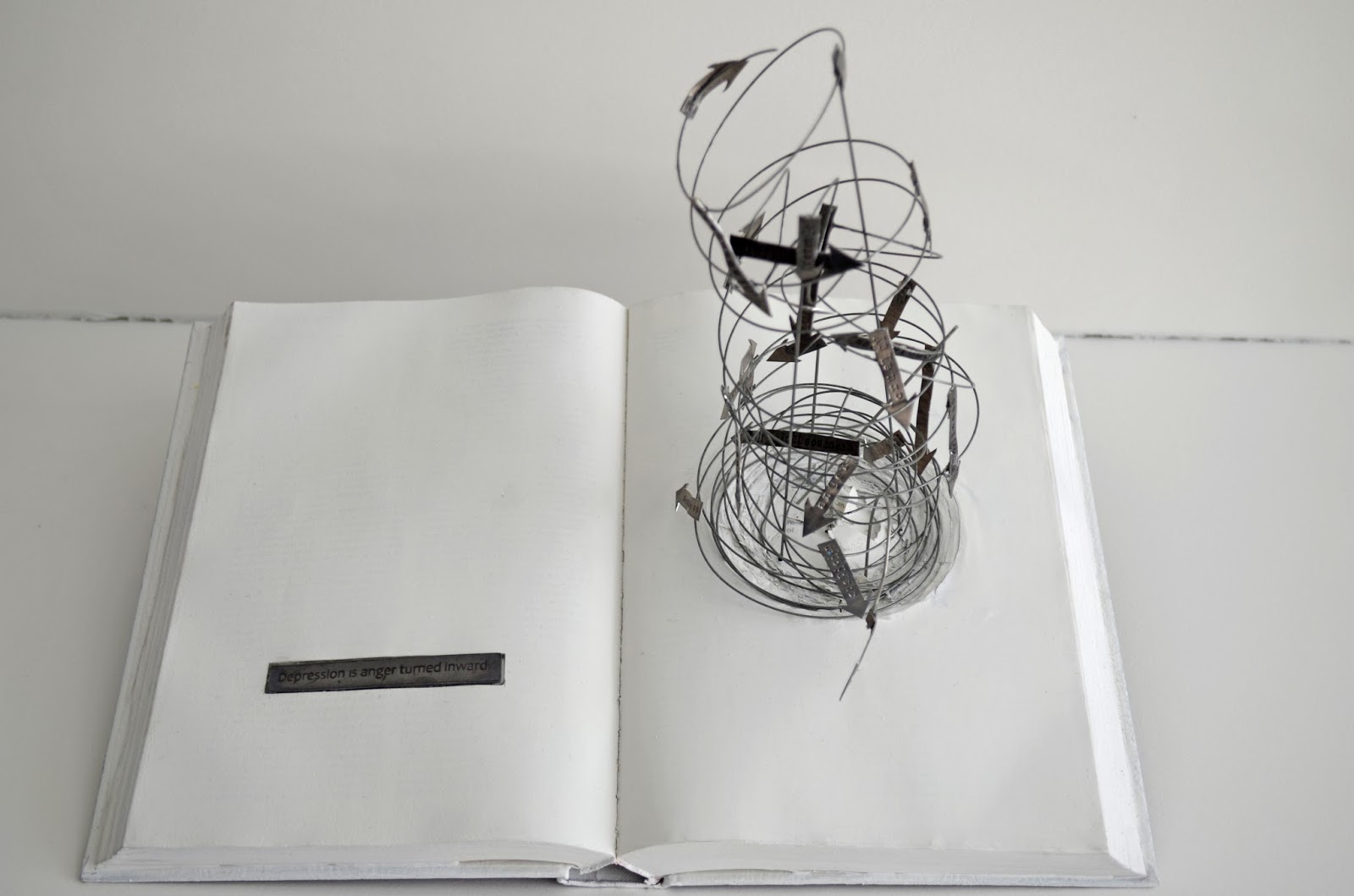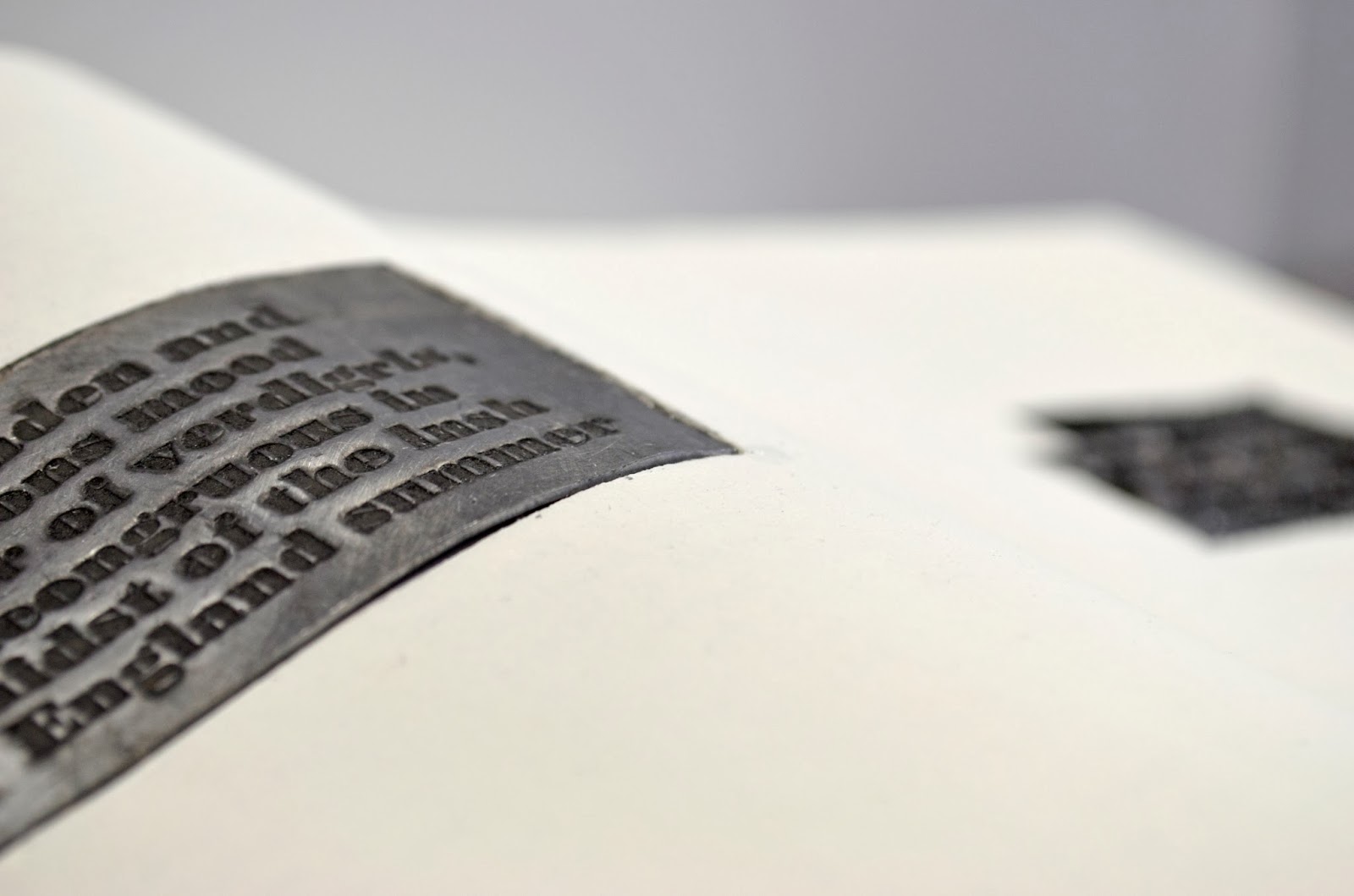Chapter 11 - The Lost Fight
9.5" x 13.75" x 1.25"
Encyclopedia volume, lead, metal paint
Blind embossing
His essay on lead has always moved me, and I find it particularly appropriate to my project.
"There and then I found a hammer and a curbstone and showed him how easy it is to fashion it into slabs and sheets; then I explained to him that with the sheets, welding them on one side with a red-hot iron, you could make pipes. I told him that wooden pipes for example, the rain pipes in that town Sales, leak and rot; I explained to him that bronze pipes are hard to make and when they are used for drinking water cause stomach trouble, and that instead lead pipes last forever and can be joined together very easily. Putting on a solemn face, I also took a random shot and explained to him that with a sheet of lead you can also line coffins for the dead, so that they don't grow worms but become dry and thin, and so the soul too is not dispersed, which is a fine advantage; and still with lead you can cast small funeral statues, not shiny like bronze, but in fact a bit dark, a bit subdued, as is suitable to objects of mourning.
Since I saw that these matters interested him greatly, I explained that, if one goes beyond appearances, lead is actually the metal of death: because it brings on death, because its weight is a desire to fall, and to fall is a property of corpses, because its very color is dulled-dead, because it is the metal of the planet Tuisto, which is the slowest of the planets, that is, the planet of the dead. I also told him that in my opinion, lead is a material different from all other materials, a metal which you feel is tired, perhaps tired of transforming itself and that does not want to transform itself anymore: the ashes of who knows how many other elements full of life, which thousands upon thousands of years ago were burned in their own fire.
These are things I really think; it is not that I invented them to close the deal. That man, whose name was Borvio, listened to all this with his mouth agape, and then he told me that it really must be as I said, and that that planet is sacred to a god who in his town was called Saturn and is depicted with a scythe."














































